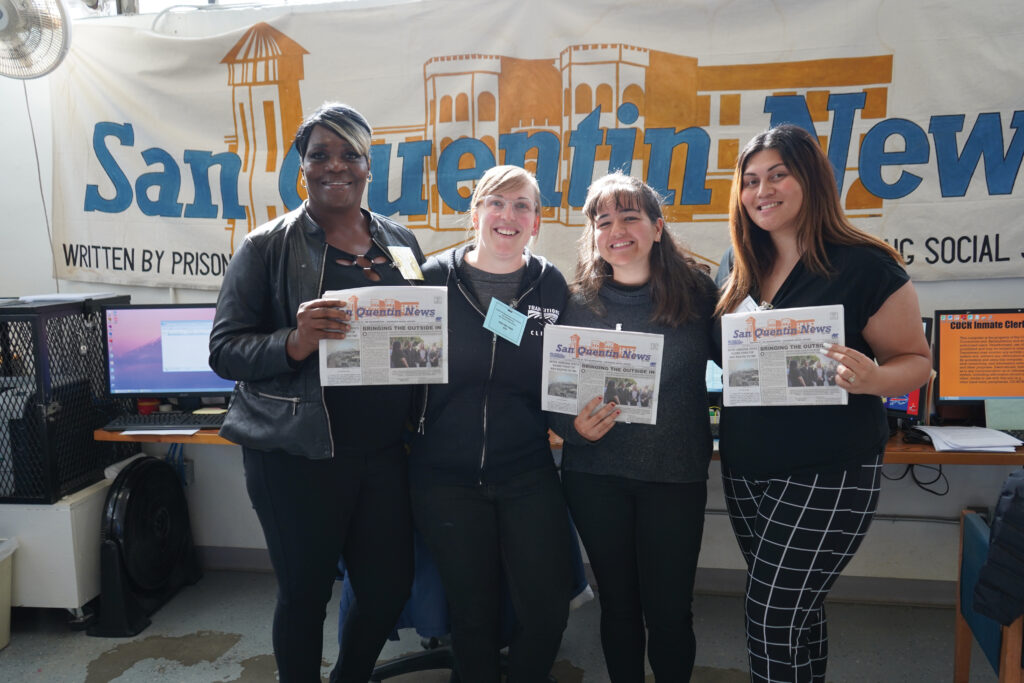
Members of the SQNews sat down with Transitions Clinic Network staff to discuss incarceration, health, and reentry resources for people returning to society.
Bethany Divakaran is a program manager for TCN, overseeing the Reentry Health Care Hub. She noted the importance of having these meetings with those incarcerated so that people being released know about the resources available to them.
“The focus of this [Hub] project is on care coordination and helping individuals coming out of incarceration — particularly prisons — get reconnected to health care in their communities. We have been working with CDCR facilities across the state, including SQ, to support education for the nurses inside and also these care connections for individuals coming home,” said Divakaran.
Sharon Fennix, TCN’s hotline coordinator, discussed having the pleasure of helping people who need assistance or just someone to talk to. She said she had an aversion to doctors during her incarceration.
“I was not trusting of them and when they started talking, I would just turn off and stop listening because I was just waiting for them to tell me what to do,” said Fennix adding, “While incarcerated, doctors don’t give you a choice, but outside you have doctors who show compassion and empathy.”
Fennix served 38 years in prison. Upon her release, she didn’t know how to navigate her transition back onto the community. She returns to prisons to share her lived experiences others.
“It’s important to talk to my brothers and sisters inside; it helps them to feel connected with someone outside. That is the support you want to have, the follow ups that the community healthcare should provide,” said Fennix, adding that, “reaching people inside allows us to support them better so that they could have a true connection upon reentry.”
Iris Tuakoi is a referrals coordinator for TCN who works with ISUDT, a program that started at SQ in 2019. She supports the general population by working closely with CDCR to improve care.
“[We] help patients get connected to care back home in the community and specifically to our TCN clinics, also [we connect them] to community health workers to get them that support,” said Tuakoi.
TCN is a community based program based in the Bay Area. TCN has worked with 21 health systems across California to provide training and to support hiring community health workers with lived experience of incarceration. Their California reentry health care hotline is accessible 9:00 A.M. to 5:00 P.M. Any person incarcerated or in the outside community can call the hotline Monday through Friday.
“We work with clinics in the community to help those medical providers and medical staff to become better [at] serving folks who have been incarcerated or are coming home from prison … we want to meet the complex medical needs of folks who have been incarcerated as well as a lot of those social needs as well,” Divakaran said.
TCN has provided health care support for over 15,000 people who have been released from CDCR. The TCN Hub helps connect people to health care clinics and community health workers in the community, working closely with ISUDT prior to release. TCN clinics offer assistance with system-level difficulties that formerly incarcerated people may face once released. These clinics provide health care and social support, as well as referrals social services, reentry hubs, employment placement organizations, programs with transportation accessibility, transitional housing assistance programs, and case management services.
“The community health care workers have lived experiences, so they know about the different resources (available) in the community that they live in,” said Divakaran.